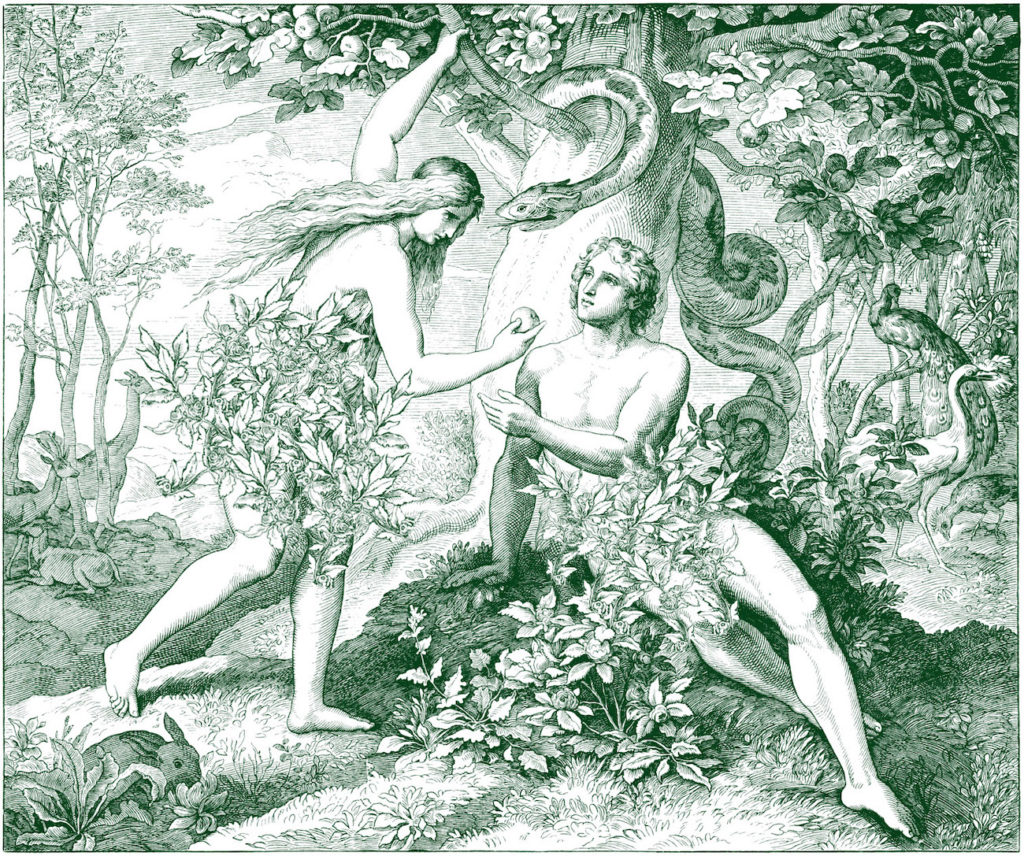This is the first article in the series on justice and race by Timothy Keller that includes: “The Sin of Racism” (June 2020), A Biblical Critique of Secular Justice and Critical Theory (August 2020), and “Justice in the Bible” (September 2020).
It is important to say at the outset, of course, that all of us read the Scripture through the lens of our own culture, which partially distorts our view of its teaching. So when we discuss ‘what the Bible says about race’ we need to do so with humility and openness to correction.
The Old Testament and Race
Creation by a Triune God. The Bible begins with God fashioning the world through his creative Word and Spirit (Genesis 1:1-3); a God that we know from the New Testament (John 1:1-3) to be Triune. God is one and yet exists in three equal, eternal, and distinct persons. God is not more three than one, nor more one than three. He is perfect unity in diversity and diversity in unity. The implications of this are clear in Ephesians 4:1-6. Paul urges the Ephesian Christians to unity despite their diverse gifts and callings (vv.7-13). But the unity Paul calls for is no abstraction. It is motivated by an appeal to the unity-in-diversity of the Trinity —“one Spirit….one Lord…one God and Father of all” [1]. Because God is unity in diversity, Christians can and must know unity across the diverse human barriers of race and culture.
The fragmentation of the fall. When human beings turned from loving and serving God, the immediate result was an alienation between persons (Genesis 3:7-24), an alienation that quickly led to violence (Genesis 4:8, 23-24). A few chapters later we see this fragmentation and hostile division continuing to grow in scope. After the flood, God calls human beings again (Genesis 9:1), as in Genesis 1:26-27, to spread out and fill the earth, building communities and societies.
Instead, human beings decided to stay together, to build a great tower reaching to the heavens in order “to make a name for ourselves” (Genesis 11:4) through technological achievements. The tower of Babel was meant to be a monument to and a sign of a society based on man’s glory rather than God’s. The result is that “God confused their language so they could not understand each other” (Genesis 11:7). Their unity broke down and they scattered.

God’s judgment, even if it was sudden and supernatural, nonetheless reflects the real, self-inflicted results of sin on human community. Every culture that is not based on God will make an idol — an ultimate value — out of something else, and that idol will necessarily divide. If my highest love is my family, then I will privilege my family over others. If it is my business, my racial group or my individual selfish interests, I will privilege my race or my self over other races and selves. The result of sin is that humanity becomes divided into racial and cultural segregated ghettoes that cannot understand one another. Some of these ghettoes are created for less powerful groups by the more powerful. But even dominant and dominating racial groups are, spiritually-speaking, hopelessly ghetto-ized in that we are all under the influence of sin, blind and deaf to the full humanity of people of other communities.
Israel and the nations. The Bible traces all human beings back to one couple, teaching that there is at bottom only one race, namely the human race. “[God] made from one man every nation of humankind…” (Acts 17:26) [2]. While sin continually divides the human race into warring, mutually non-comprehending fragments, this hostility is not God’s will. Even though in Genesis 12 God chooses to bring his salvation into the world through one man — Abraham — and therefore through one family who becomes one particular nation — Israel — God nevertheless at the outset explains that his purpose is to bless all the nations and families of the earth (Genesis 12:2-3).
Even when God gives Israel laws that make them different from the surrounding nations, it is always for the purpose of attracting them to the Lord (Deuteronomy 4:5-7). This plan is repeatedly declared by the prophets who foresee an eventual spiritual equality between Israel, Assyria, and Egypt, the great enemies. Stunningly, Isaiah writes that some day the Lord of hosts will say, “Blessed be Egypt my people, and Assyria the work of my hands, and Israel my inheritance” (Isaiah 19:25).
The New Testament and Race
Jesus and the nations. However, even within Israel, saturated with these messages of God’s concern for all races and nations equally, the sinfulness of the human heart moved to make idols of race. Jesus came into the world claiming that he was the Servant spoken of in Isaiah 42, who will “proclaim righteousness to the Gentiles” (Matthew 12:18-21, quoting Isaiah 42:1-3). When he told the crowd at the synagogue that his ministry was for all races, just as what happened when Elijah and Elisha ministered to the widow of Zaraphath and Naaman the Syrian, the listeners were so furious that they tried to throw him off a cliff (Luke 4:24-30). Nevertheless, Jesus stays true to his mission. He finds the faith of a Roman oppressor greater than any in Israel (Matthew 8:5-13). When he sends his disciples out, he sends them to “all nations” without exception or favoritism (Matthew 28:18-20).
Pentecost and the nations. The tragedy of Babel is preceded by a “Table of the Nations”—a list of various races and nationalities of the time. The only other place in the Bible that we have such a “Table of the Nations” is in Acts 2:5-12. Because it was Passover, people from many other countries had gathered — they were linguistically different, speaking the language of their home nations. But when the Holy Spirit descended on the disciples after Jesus’ resurrection, and the apostles began to preach publicly, God performed a miracle that was an intentional reversal of the judgment of Babel.
At Babel, people of one speech could not understand one another, because they were trying to reach up to heaven in their own strength to “make a name for themselves.” At Pentecost, people of many speeches were all able to understand God’s message. Why? Because in Acts 2, God “comes down” again, but this time in blessing, not judgment (Genesis 11:5ff). At Pentecost, God reversed the curse of Babel through the work of his Son.

In Christ, there is neither Greek nor Jew (Galatians 3:28). In Ephesians 2:14ff, Paul explains that the cross removes the pride and self-aggrandizement that leads to racial animosity and human disunity. Now the church is to show the world how in Christ the lost community of humanity can be recovered. We are to be an “alternate city” of God (Matthew 5:14-17) in the midst of every “City of Man,” showing the unity of persons across culture and race and class barriers that only Christ can bring [3]. And finally, some day, the curse will be totally gone. “In that day I will change the speech of the peoples to a pure speech, that all may call on the name of the Lord, and serve him together” (Zephaniah 3:9).
Peter, Paul, and the early church. Despite the miracle of Pentecost, the book of Acts shows how hard it was for Christians to absorb the message of the gospel as it bore on race and racism. Acts 10-11 is a classic case in point. God wants Peter to go and see a Roman centurion, Cornelius. But he has to send multiple, strong, obviously-supernatural signs to Peter in order to get him to even visit a Gentile. First, he gives Peter a vision of a huge sheet (or tablecloth) on which rests ‘unclean’ animals, as designated by the Mosaic law. God’s voice tells him not to consider anything he has created as unclean. This is repeated three times. But the vision alone is insufficient to help Peter. He doesn’t get it (Acts 10:17).
Next, God the Spirit directly commands him to go with the men who are about to appear at his door (vv.19-20). Finally, he hears from the men that an angel had appeared to a Gentile centurion, Cornelius. This shows how strong racial prejudices were and how wide the chasm was between Jew and Gentile.
“It is difficult for us to grasp the impassable gulf which yawned in those days between the Jews on the one hand and the Gentiles on the other. Not that the Old Testament countenanced such a divide….it affirmed that God had a purpose for [the Gentiles]. By choosing and blessing [the Jews] he intended to bless all the families of the earth (Genesis 12:1-4)…The tragedy was that Israel twisted this doctrine of election into one of favoritism, became filled with racial pride and hatred, despised the Gentiles as ‘dogs’, and developed traditions that kept them apart. No orthodox Jew would ever enter the home of a Gentile…all familiar intercourse with Gentiles was forbidden…”
John Stott, The Message of Acts: The Bible Speaks Today
Finally, Peter goes to the home of Cornelius and comes to confess: “I now realize how true it is that God does not show favoritism but accepts from every nation the one who fears him and does what is right” (Acts 10:34-35). This is one of the central messages of the book of Acts as we see Jewish believers, under the power of the gospel, accepting and embracing first Samaritans, and then Africans (Acts 8), and then Romans (Acts 10) and Greeks (Acts 11).
Revelation. The climax of the Bible and of history is found in the book of Revelation. As we have seen, the New Testament emphasizes the fundamental unity of the human race (Acts 17:26) and the equality of all persons created in the image of God (Genesis 1:26-27), but especially within the church, in Christ (Galatians 3:28). But in the final book we see a remarkable appreciation for the indelible diversity of human beings. The New Jerusalem will be enriched, because “the kings of the earth will bring their splendor into it” and “the glory and honor of the nations will be brought into it” (Revelation 21:24, 26). We see each culture and race bringing ‘peculiar honors’ — particular gifts — to the Lord in adoring worship.
And Revelation 7:9ff tells us that in the new heaven and new earth, the people of God will be of “every tongue, tribe, people, and nation.” Our bodies are not unimportant, discardable containers for the soul. They will be resurrected and much of our pre-resurrection lives will be brought into the new creation. The resurrection body of Jesus was both different and yet recognizable, and it contained the nail prints of the cross (John 20; Luke 24). Revelation 7:9ff tells us that our resurrection bodies will keep their ethnicity. Final redemption, then, does not erase racial and cultural difference. Different cultures have their own particular glories and splendors, analogous to the differing gifts of the body of Christ.
There is always a danger of putting so much emphasis on the unity of the human race that we come to insist that race is unimportant as the older liberalism taught, namely that we should be completely ‘color-blind.’ But it is also possible, especially today in the time of the newer progressivism and identity politics, to put too much emphasis on irreconcilable diversity, so no racial group has the right to “speak into” the experience of the other, which obscures our common humanity.
The Gospel and Race
Considering that it took three visions for Peter to see in Acts 10-11 the importance of racial equality within the church, it is remarkable to come to Galatians 2, where we see that he has fallen back into a refusal to eat with Gentile believers. Paul rebukes him, but the basis for his critique is crucial to study. He tells of the incident:
When I saw that they were not acting in line with the truth of the gospel, I said to [Peter] in front of them all, “You are a Jew, yet you live like a Gentile and not like a Jew. How is it, then, that you force Gentiles to follow Jewish customs? We who are Jews by birth and not sinful Gentiles know that a person is not justified by the works of the law, but by faith in Jesus Christ….”
Galatians 2:14-15
Paul’s basic argument to Peter is this. A: “God did not have fellowship with you on the basis of your race and culture (v.15). Though you were good and devout, your race and customs had nothing to do with it — your relationship with God is based on grace.” Therefore, B: “How then can you have fellowship with others on the basis of race and culture (v.14)?” Let’s notice two things about what Paul is doing here.
First, Paul’s analysis of the sin is noteworthy. He does not simply say that racism is a sin, although it is indeed a failure to love one’s neighbor as one’s self (cf. Luke 10:25-37). Rather, Paul is laying bare the spiritual roots of racism—it is a rejection of the gospel of salvation and a return to justification by our moral efforts or pedigree. Christians who fall into racism are continuing to trust in works-righteousness in at least one part of their lives. Their hearts still oppose grace and seek to find ways of self-justification. They try to devise ways to feel superior, more acceptable, and better than others… and they use their racial characteristics to do so.
Second, Paul’s actual treatment of the sin is brilliant. He did not simply say to Peter, “Repent of the sin of racism, you bigot!” but rather, he said, “Repent of the sin of forgetting your gracious welcome by God through the costly sacrifice of Christ.” Paul did not focus just on the behavioral sin, but also on root of the self-righteousness beneath it. This approach is far more persuasive and effective than simply ranting at someone for being a racist. When you are trying to motivate people by urging them to see their riches in Christ, then you are pointing to their value and dignity in your appeal. You are not putting them down, but lifting them up even as you critique. On the other hand, if you try to motivate people by shaming them, they will (rightly) sense a self-righteousness on your part, and this will only stimulate and enhance their self-righteousness, not diminish it. When we instead use God’s grace as a motivator, we can criticize sharply and directly, but the listeners will generally be able to perceive that we are nonetheless for them.
Peter’s racial pride was also grounded in fear (v.12 – he was afraid). When our sin is rooted in fear, we need to be loved and strengthened in order to get the courage to do right in spite of our fear. If Paul only said, “Your racism is a violation of the rules of God,” that fearfulness would not have been addressed. But when Paul said, “Your racism is a violation of the grace and mercy of God to you,” he was also addressing Peter’s fear. He appealed, “You’ve forgotten Christ’s love for you, Peter.”
Conclusion
In our next essay, I will give more attention to the character of the sin of racism and how the gospel addresses it. For now, I can end by saying that the gospel-analysis of the roots of racism and its healing is sorely missing in much of the conversation about race at present. Today, there are many defensive voices denying the magnitude of the problem and charging almost everyone who speaks strongly about racism in the church with being overly “woke” or “SJWs” or Marxists. On the other hand, many of the voices who are speaking out about the racial injustice are not taking cues from Paul’s approach at all. They resort to shaming and often exhibit a self-righteous manner.
Some may respond that any ‘tone-policing’ is itself a way of silencing voices of protest, and indeed it could function that way. But Galatians 2 is not talking about tone of voice. Paul’s words could have been strong and loud, not “nice” at all. But if we don’t do tone-policing, we must do heart-policing. The gospel must drain us of our own self-righteousness if we are going to be able to call others to abandon the destructive self-justification of racism, both active and conscious as well as implicit and hidden. Jesus threw the money changers out of the temple, and called the Pharisees ‘whitewashed tombs” (Matthew 23:37), but he was also so tender that it was said of him, “A bruised reed he will not break and a smoldering wick he will not snuff out, till he has brought justice through to victory” (Matthew 12:20).

Article Footnotes
1) Paul motivates to unity through seven acclamations — “one body and one Spirit…one hope…one Lord, one faith, one baptism, one God and Father of all…” This list actually reduces to three, because three of the items are the three persons of the Trinity, and the remaining four are ways believers relate to the Father, Son, and Holy Spirit. See P.T. O’Brien, The Letter to the Ephesians, Eerdmans, 1999, p.280.
2) I’m fully aware that current science does not believe all human being can be genetically traced back to a single couple. I am not here going to address the question of whether there was a ‘literal Adam and Eve.’ I believe there was, but for our purposes it is only necessary to observe what the Bible is teaching here, namely, that there is at bottom only one race — the human race.
3) “Racial roles are superceded in the New Testament, where ‘there cannot be Greek and Jew…barbarian, Scythian, slave, free, but Christ is all, and in all.’ (Colossians 3:1). Any attempt to grade the branches of mankind by an appeal to Genesis 9:25-27 is re- erecting what God has demolished..” (Derek Kidner, Genesis: A Commentary and Introduction, IVP, 1967, p.103)




